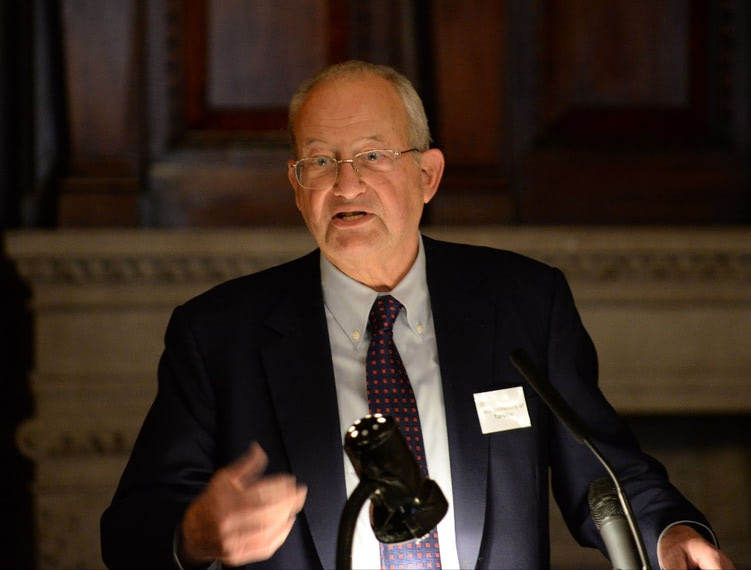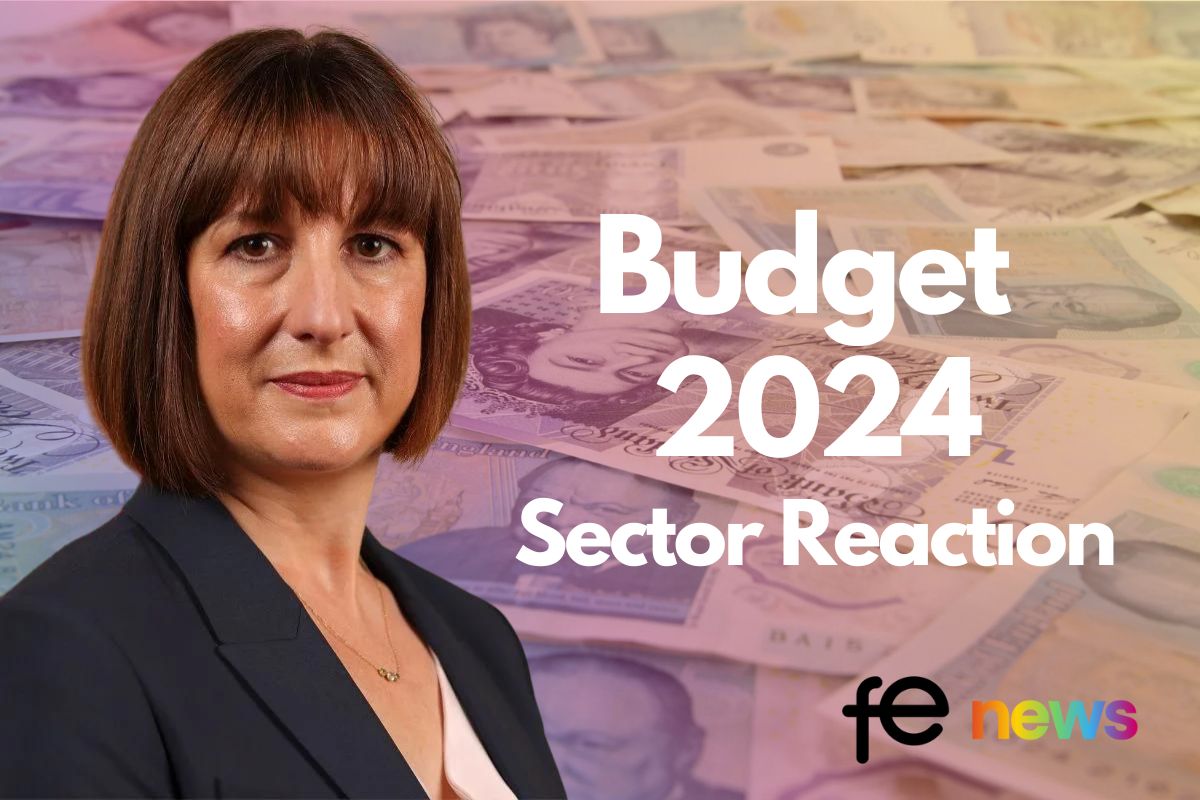Encourage young engineers to develop skills that make a difference to Society

Lord Sainsbury of Turvill speaking at the Engineers in Business Fellowship Annual Dinner (8 May):
I always enjoy being at the Sainsbury Management Fellows’ Annual Dinner because it is an opportunity to celebrate the success of the scheme and the work of the Sainsbury Management Fellows.
When the scheme was set up 32 years ago the purpose was to fund a small number of the best young engineers to go abroad to get MBAs.
It was hoped that business skills would help them rise quickly to the top of large British companies or to set up their own high-tech businesses.
This was important because if you want the leaders of major companies to be entrepreneurial, they must be people who understand the technologies of their businesses and the needs of their customers.
The results speak for themselves:
Today there are 356 Sainsbury Management Fellows, including those now at business school.
Approximately 170 fellows have founded or co-founded a business, with a total value of over £4.8bn and have created over 19,000 jobs. Nearly 300 newly founded businesses are still in operation and over 230 fellows have helped further develop some of the UK’s largest corporations, enhancing economic wealth.
Speaking at the SMF Annual Dinner, Lord Sainsbury said “170 Fellows have founded or co-founded a business, with a total value of over £4.8bn and have created over 19,000 jobs” #Engineers with business skills making a difference! pic.twitter.com/Gt4clXEQK2
— Engineers in Business Fellowship Charity (@EngineersnBiz) May 8, 2019
Not only have Sainsbury Management Fellows contributed to the economic performance of UK industry through the businesses they have founded or run, 11% of Fellows are involved in VC or Growth investing in a professional or private capacity totalling over £400m. These investments help to fuel technological development and the much-needed advancement of innovation in the UK economy.
This past year, Fellow Michael Hill launched the SMF Investor and Finance Group, to enhance the networking opportunities of the 40 Fellows in finance and investment management. The group has had two meetings and aims to identify the best business investment opportunities inside and outside the SMF Network and explore the provision of both capital and advisory support. Many SMFs who run or own SMEs are also business angels involved in investing in new technology. This group is also included in the Investor and Finance network.
In addition to supporting innovation in the economy, Sainsbury Management Fellows continue to promote engineering as an exciting, well paid and fulfilling career to young people.
I am delighted that this year, the Sainsbury Management Fellows have further extended their participation in programmes to encourage young people to become engineers and to develop their skills to make a difference to Society. Individual SMFs are making a real difference to the education and career paths of young engineers and technicians worldwide.
Here are just a few examples that I would like to mention:
The Silicon Valley Internship Program, launched by Sainsbury Management Fellow Michael Hughes to inspire entrepreneurialism in the UK, is now in its seventh year and continues to be very successful.
This unique program aims to give new UK software engineering graduates the experience of working at a Silicon Valley start-up through a one-year internship, in the hope that this experience will bring a little of the Silicon Valley attitude back to the entrepreneurial community in the UK.
The Silicon Valley Internship Program has grown substantially this year with over 800 applications, representing 32 nationalities and over 60% of the applicants were women. I think this is an excellent program which benefits everyone involved and ultimately brings significant commercial benefit back to the UK.
Nick Sullivan is working to teach and embed a fast-track approach to road mapping at a new University, The Al Hussein Technical University (HTU) established by Jordan’s Crown Prince Foundation. HTU was set up to provide rigorous and industrially-relevant technical education. Its purpose is to enable its graduates to obtain employment and contribute to the development of Jordan’s industry, economy and society. Nick is also looking at future initiatives in Jordan to help develop SME businesses.
The Leaders in Innovation Fellowships Programme aims to build the business skills of researchers within partner countries of the Newton Fund for entrepreneurship and commercialisation of their research. Cohorts of researchers are brought to the UK to attend a residential programme and receive training in entrepreneurship and access to mentors who help them to design their business plans. The two-week training course is rounded off with a final day of pitches before a panel of judges. I am pleased that several SMFs helped with the judging this year and that David Falzani, President of Engineers in Business Fellowship, acted as a mentor to several of the teams.
This is the fifth year that Sainsbury Management Fellows have supported business competitions at universities which aim to encourage engineering students to consider business courses as part of their education.
The competitions challenge engineering students to create a novel product that meets a need in society and demonstrates the use of engineering skills in the creative process. Where possible, fellows participate in the coaching and judging and award first, second and third place cash prizes to the winning teams. The first prize winning team is then paired with a Sainsbury Management Fellow mentor.
This year the number of competitions was expanded to 23 universities and next year, we hope to extend the business competitions to 40 educational establishments. I am very pleased to see that many of the universities which participated in the business competitions are represented here this evening. I hope that these new university partnerships will continue for many years to come.
Another important and long-term partnership for the Sainsbury Management Fellows is with the Royal Academy of Engineering. Fellows help to select and mentor the Engineering Leaders Scholarship Programme winners, the best and brightest engineering undergraduates.
I am also pleased that Sainsbury Management Fellows have volunteered to help with the Enterprise Hub; the Royal Academy’s exciting initiative to encourage business minded UK based engineers to start their own companies.
I’m delighted to hear that the newly formed Investor and Finance Group is also supporting the Enterprise Hub as mentors and course instructors.
The late James Raby, SMF treasurer, was a great advocate of the Royal Academy programmes to encourage young engineers. He worked tirelessly every year, presenting business games at their annual events and mentoring a huge number of Engineering Leaders Scholarship (ELS) Award Winners throughout the years. Some of those who James mentored went on the become Sainsbury Management Fellows themselves and are with us tonight.
To honour James’ memory, a new annual award has been created.
This award is to be presented to the SMF who has done the most in the past year to support the Royal Academy’s young engineering schemes. The winner of this year’s award helped at both the ELS events in March and in October. He ran a session called ‘How to solve a quantifiable problem’ last October. He has also helped with the young engineering programmes down the years. It has been said that “he is the first to put up his hand up to mentor a young engineer in need of support or to volunteer to represent the Sainsbury Management Fellows at a university business competition.”
I am pleased to announce the winner of the James Raby Award 2019 is Sam Cockerill. Please join me in thanking Sam for the good work that he has done.
Lord Sainsbury presenting the ‘James Raby Award 2019’ to Sainsbury Management Fellow Sam Cockerill. This award is presented to the SMF who has done the most in the past year to support the Royal Academy of Engineering’s young engineering schemes. @LibertineFPE @RAEngNews pic.twitter.com/trlYyxi0Pc
— Engineers in Business Fellowship Charity (@EngineersnBiz) May 9, 2019
Tonight, is the largest dinner to date and a testament to the work that the Sainsbury Management Fellows have done this year. It is good to see familiar faces and many new colleagues and partners who come from many different economic sectors.
We welcome your help and support and your feedback on how we work together to extend the influence and enhance the success of the Sainsbury Management Fellows in the years ahead.
Lord Sainsbury of Turvill











Responses